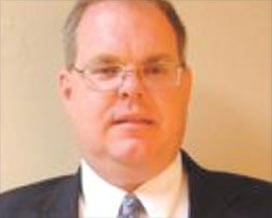For many people, Chapter 7 bankruptcy is the best option when faced with overwhelming debt. Medical debt is a common issue that can lead to bankruptcy. Conditions like cancer, that require ongoing, expensive treatment, often leaving people with five or six figures worth of medical debt.
However, you don’t have to get sick to end up in a financially difficult situation. Many individuals find that just using credit cards for monthly and weekly expenses can quickly lead to financial hardship. Thankfully, like medical debt, credit card debt is typically unsecured. It is eligible for discharge in Chapter 7 bankruptcy proceedings.
Carrying a balance is a financial trap
The thing about credit cards is that they have the ability to lull people into a sense of financial security. Many credit cards come with tempting initial offers, like low introductory interest rates and the ability to transfer balances from cards with higher rates. People often overlook how rates change, as well as the outrageous fees cards may assess borrowers.
Unfortunately, low introductory rates often skyrocket to higher interest rates after a certain number of months. Not only will you have to pay interest on new transactions after that, you may have to pay interest for the entire unpaid balance over the duration that you have carried it.
People who fall into the financial trap of not paying off their credit card each month can quickly find that they can no longer afford the necessities in life. That can leave them extending themselves even further with credit and incurring more interest and fees.
Chapter 7 bankruptcy provides you with a fresh financial start
If you have lower income and not enough assets to rely on, credit card debt can seem like an insurmountable challenge. Once you get close to the credit limit on your cards, every month will be a struggle just to avoid overlimit fees. What little extra income you have each month probably won’t be enough to make a substantial difference to your debt once you’ve gotten in over your head.
Chapter 7 bankruptcy provides several kinds of valuable protection. First of all, the automatic stay will stop creditors from calling you or sending you threatening letters. It can even put the brakes on pending lawsuits from creditors you have failed to pay recently. After that, the discharge you receive in Chapter 7 bankruptcy will essentially forgive your obligation to pay your creditors for unsecured debts.
Secured debts, such as a vehicle loan or a mortgage, will not simply disappear. If you do not continue to pay those debts (and potentially reaffirm them after bankruptcy), you may lose the collateral item, which would be your home or your car. Medical debt and credit card debts, however, will no longer have to burden you. If you are struggling to keep your credit card debt under control, it may be time to consider Chapter 7 bankruptcy as a solution for your situation.


